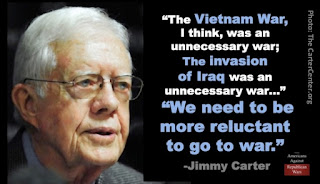As a lifetime Protestant with strong Third Reformation (Anabaptist) heritage,
I reject the governance practices (polity) of the Vatican Church State, as well as that of the State
Church of Luther. I do support separation of Church and State and thank my Anabaptist forebearers for paving the way for the Free Church in America.
Having said that; I support the Pastoral Ministry of this Vatican Pope (Francis) and the moral authority with which he speaks. He is speaking to these very universal and
humanitarian issues, although he is not my Papa. I am reading with considerable amusement the
repetitious declarations of the News Media, and even some of my Protestant peers who need to update their Church History. The Media speaks regularly regarding
the Pope departing from his pastoral corner and fearlessly jumps into (not avoiding) the political. With all
due respect for separation of Church and State; and I do separate them, I find the Media reflecting a common misperception of the Media, as well as of others.
When referencing Emigration, Climate Control, et al; the Pope is (1) reflecting our American Founders
political choice of Freedom OF RELIGION (including a free church) and not freedom FROM RELIGION.
That Free Church and freedom OF religion rather than FROM religion allowed Roger Williams to be a non-conformist in a Puritan culture and resolved other problems in founding Catholic Maryland. It allows The A-THEIST to live outside of religion if s/he
so chooses but it does not give him/her
the right to arbitrarily deprive others of religion as the a-theist is prone to
do in that predatory secular culture.
(2) The Pope is reflecting a pastoral issue! In my eight
decades there has never been a time when treating others like we want to be
treated was not a Christian teaching. While some people attempt to confine such
issues as climate control, emigration, et al, to politics, these have been humanitarian issues of Christian Stewardship since
before I was born (the week Lindbergh flew his plane to Paris J). I grant you, the
Church has allowed others to re-define its message and say what is pastoral and
what is simply political, but that does not mean it has always been that way, nor does it mean it is biblical and
confined to politics.It is a universal, humanitarian issue that is of significant importance to people's health and well-being, beyond any financial considerations.
 Paraphrasing Jesus, he said we will be known by the
fruits we produce. He specifically told his disciples they would be known by
their love for one another and he strongly taught that if we follow him we will love one another and be known by that love (John 13:34). Elsewhere, he gave the example of the good Samaritan in Luke 10. In that instance, the command Jesus gave to the Lawyer to go and do likewise (v. 37) might just as well have been spoken of one American and one Muslim. The Jews and mixed Samaritans hated each other just that badly.
Paraphrasing Jesus, he said we will be known by the
fruits we produce. He specifically told his disciples they would be known by
their love for one another and he strongly taught that if we follow him we will love one another and be known by that love (John 13:34). Elsewhere, he gave the example of the good Samaritan in Luke 10. In that instance, the command Jesus gave to the Lawyer to go and do likewise (v. 37) might just as well have been spoken of one American and one Muslim. The Jews and mixed Samaritans hated each other just that badly.
From Warner’s World, I join those who hope and pray Pope Francis will lead America back to the altars of prayer and devotion, and the faith on which our American culture is built.
walkingwithwarner.blogspot.com


















